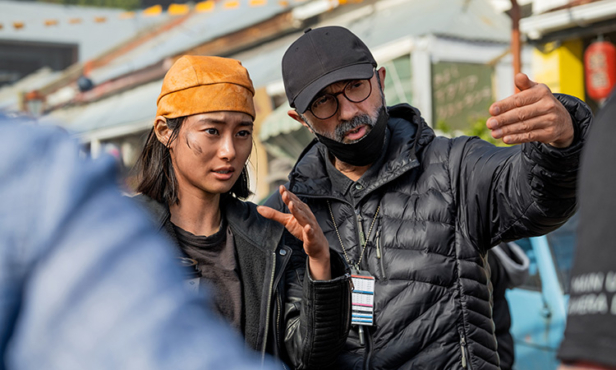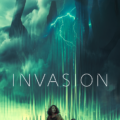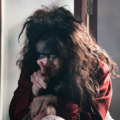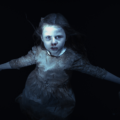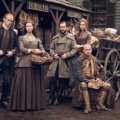“It’s been 121 days since aliens invaded our world…” Apple TV+’s epic alien sci-fi series, Invasion, has been back for its second season and from underground rebels, to first contact, to that scene in the Channel Tunnel it’s been one hell of a season. And it’s not over yet.
Season Two goes out with a bang this week with its epic series finale and to celebrate, we sat down with Alik Sakharov (pictured above with actor Shioli Kutsuna) who directed four episodes of the new series (including the first three episodes of Season Two and the incredibly intense episode where Mitsuki first speaks to the entity) and whose no stranger to directing television, having worked on Ozark, The Witcher, House Of Cards and Game Of Thrones.
Invasion is set in numerous countries and told from different perspectives. What is it like juggling all those elements when directing episodes of this series?
It’s kind of business as usual really. It’s not something new to me. I’ve done that in the past. The most important thing is to prep really well and understand what pieces are taking place in which countries (or country) and then just go about it with all the knowledge that you accumulated. And communicating all that with the crew.
It wasn’t very complicated. In this particular case, we shot in the UK and in Cape Town in South Africa, and whilst the UK was playing for the UK, Cape Town was playing for multiple geographical points in the story – Brazil,, Oklahoma and British Columbia…
Do you have a particular favourite storyline or set of characters?
I like all the storylines because they are intertwined. In working on all the storylines, the important thing is not to do anything that screams favouritism, because otherwise one storyline might come out better than the other.
My job really as a director is to be able to modulate all the storylines such that they’re all are treated with equal importance, and also are interesting to watch, no matter where we are and no matter which storyline we are in.
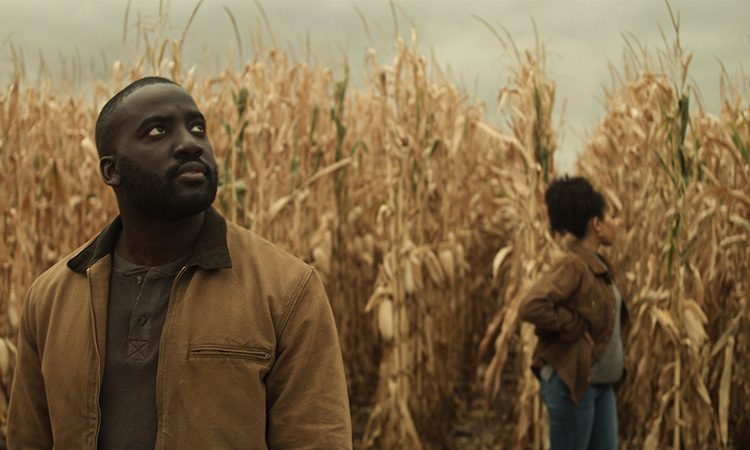
Invasion is of course a sci-fi series, but its main focus is on the characters. What’s it like to focus on very human situations against a genre backdrop?
It’s interesting, I don’t really think about the sci-fi element because it is such a huge component of the show that sci-fi is sort of like a character.
It’s a character-based drama, and the sci-fi element is very dramatic also, so it all runs as one big dramatic curve. Everyone and everything has a dramatic development. So in that regard, I don’t see it as sci-fi. I just see it as a big drama.
How was it to work with all the special effects in the series?
They’re amazing, and the special effects department in this series is brilliant. They’re wonderful to work with and are very inventive. Eric Henry, who’s leading their team, is just brilliant. I’ve worked with him in the past. I love these guys, they are fantastic. They’re really good at what they do, and easy to get along with.
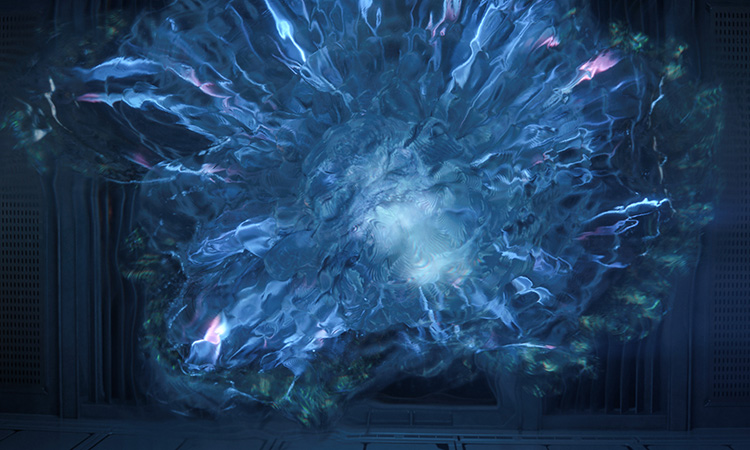
What were the biggest challenges when shooting episodes with a lot of special effects?
There is always a challenge, like imagining where those special visual effects triggers are going to be taking place. When we actually shoot, there’s nothing on the screen. So you have to imagine what the entity is going to be like, what the hunter-killers are going to be like. How are they going to move? How are we going to stage the action? How we’re going to block it? How is the actor going to react to everything when basically they’re reacting to an empty space?!
So imagining what’s going to happen is the pre-visualisation. Eric and his team were very hands-on in creating these pre-vises for us, in which we would be very clearly seeing how the action would unfold in the visual effects environment.
So the entire team, including the actors, were able to understand where they needed to be, how they needed to be reacting, and how the entire progression of the timeline happened. So it’s a team effort and it all comes together really nicely.
You directed episode five of the series – The Voice From The Other Side – where we hear from the alien entity itself via its conversation with Mutsuki. What was it like to film those scenes with Shioli Kutsuna?
It was great. Shioli is brilliant. I love her. She’s very, very subtle. She brings so much, she comes extra prepared. What was interesting about that particular scene was we needed to understand the timeline of that scene because really, when Shioli is in the alien enclosure, she’s basically acting against empty space. So she needs to visualise what’s happening within that timeline. So that her emotions develop properly at the precise moment of the timeline when they need to be interacting with that entity. So if the entity transforms into a little girl, and that conversation is happening and unfolding with the little girl, there needs to be a physical understanding of what and how it’s going to happen.
There was an actress in place of that girl, that particular portion was slightly simpler because it’s basically acting/reacting. But when the girl disappears, she hears the voice of Hinata and now she’s interacting with Hinata, basically she’s interacting with empty space.
So she needed to understand really, really well how and where she was going to place particular accents in the scene.
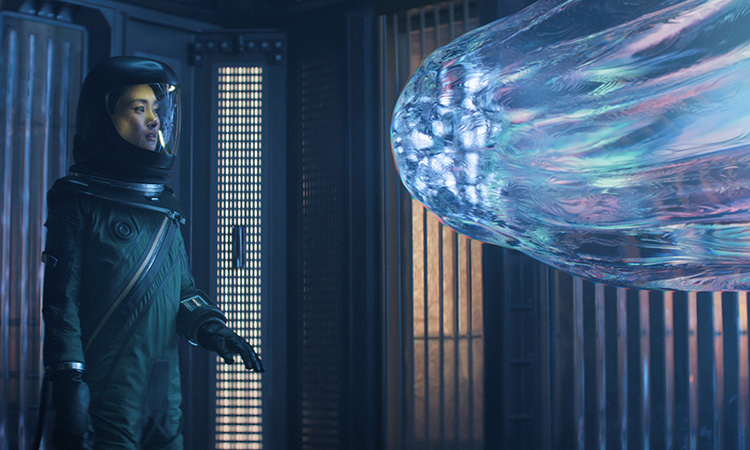
You’ve directed TV shows in numerous genres – sci-fi, fantasy drama – is there one genre you prefer?
I don’t differentiate anything, to be honest. For me, many of the shows that I end up working on are all based on character and based on the dramatic development of a character.
So I don’t really see if it’s a thriller, or if it’s a sci-fi or if it’s a chase movie. It really doesn’t matter to me as the most important element in the show, in a story, any story, is the character.
Even the entity, even the sci-fi element, even the hunter-killers [in Invasion] are characters. I treat them as characters because they need to have a dramatic development. Otherwise, it could become boring very quickly.
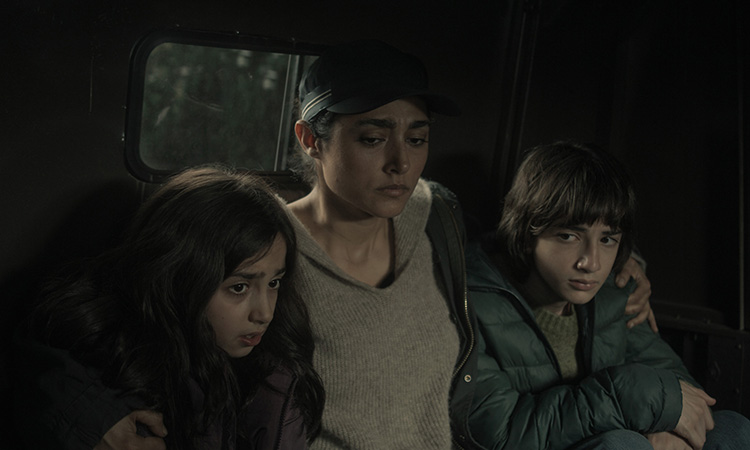
There are plenty of sci-fi shows out there for audiences to binge. What makes Invasion so special?
Invasion is quite unique. Our earth is invaded by the extraterrestrial force. So we’re forced to put together all our energies to unite and fight that one thing. That thing that wants our planet. So in that, our story is quite unique and it stands apart from others.
Now that the series is coming to an end, what do you want audiences to take away from Invasion?
I hope they enjoy it, I hope they forget the reality. Let’s just lose ourselves in this story and see how it resolves itself.
The final episode of Invasion Season Two will be released on 25 October on Apple TV+
